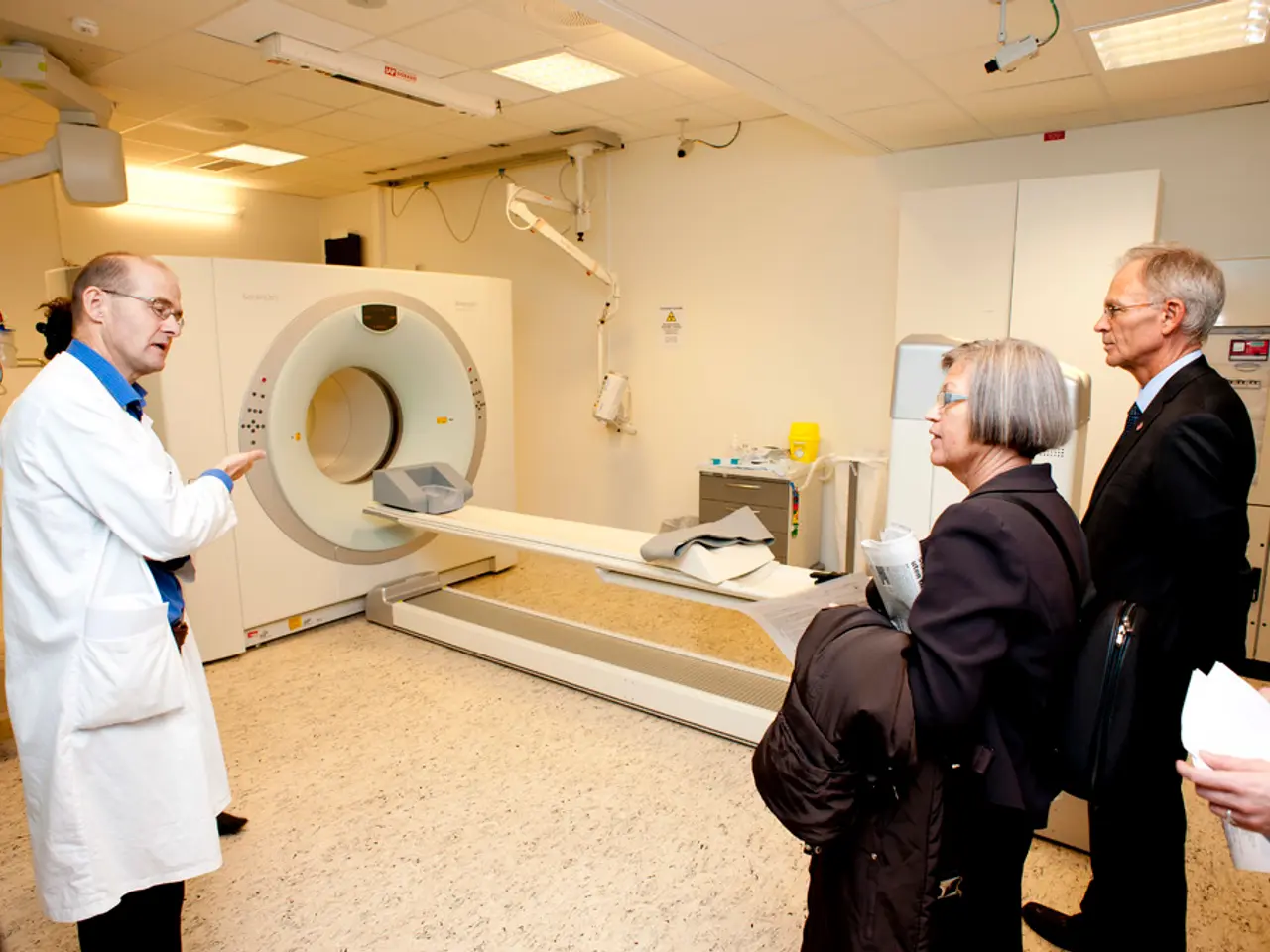Polycystic Ovary Syndrome (PCOS) - Widely Prevalent, Yet Frequently Misinterpreted
Polycystic Ovary Syndrome (PCOS) is a complex endocrine disorder that affects more than one in ten women, yet it is often misunderstood. Contrary to popular belief, PCOS is not solely a reproductive issue affecting fertility. Instead, it encompasses a wide range of health implications that go beyond reproduction.
One of the most significant aspects of PCOS is its impact on health. The condition is linked to an increased risk of metabolic and cardiovascular issues, such as insulin resistance, type 2 diabetes, high blood pressure, high LDL cholesterol, atrial fibrillation, heart attacks, and strokes. The high androgen levels associated with PCOS contribute to inflammation and oxidative stress in the cardiovascular system [1][5].
In addition to physical health concerns, PCOS also has a substantial mental health impact. Many individuals with PCOS experience psychological distress, including depression and anxiety, triggered by symptoms like infertility, obesity, and hirsutism. This mental health burden is often underrecognized and undertreated [2][4].
Beyond its metabolic and mental health implications, PCOS may lead to other health issues, such as obstructive sleep apnea, preterm delivery, cesarean sections, and miscarriage risks. Skin symptoms include acne resistant to treatment, oily skin, acanthosis nigricans (dark, velvety skin patches), and skin tags [3].
The unpredictable nature of PCOS symptoms frequently causes emotional distress, negatively affecting overall quality of life. Physical symptoms such as obesity, hirsutism, and infertility contribute to social anxiety, depression, and lowered self-esteem [2][3].
Despite the common belief that PCOS makes conception impossible, it doesn't. However, the hallmark reproductive impact of PCOS is ovulatory dysfunction. Ovarian cysts, which are immature follicles that fail to ovulate properly due to hormonal imbalance, disrupt the menstrual cycle and reduce fertility [4].
Effective management of PCOS requires addressing both physiological and psychological symptoms to improve overall outcomes. For example, UR Medicine's Strong Fertility Center is conducting research on a new treatment approach for PCOS patients trying to conceive, as well as seeking reproductive-age patients with PCOS interested in trying to conceive for a study [6][7].
Moreover, UR Medicine is also seeking healthy adolescent girls whose mothers have been diagnosed with PCOS for a study on how ovaries change during puberty, offering compensation of up to $150 [8].
In conclusion, PCOS is a systemic disorder with far-reaching implications for an individual's well-being and long-term health. It is crucial to raise awareness about this misconceived condition and to encourage effective management strategies that address both its physiological and psychological symptoms.
References: [1] Azziz, R., Dunaif, A., Futterweit, W., Legro, R., Mandelbaum, S., O'Sullivan, M., ... & Teich, A. (2003). Revised 2003 consensus statement by the Androgen Excess and PCOS Society on diagnostic criteria and long-term health risks related to polycystic ovary syndrome. Journal of clinical endocrinology and metabolism, 88(9), 4393-4402. [2] Azziz, R., Dunaif, A., Futterweit, W., Legro, R., Mandelbaum, S., O'Sullivan, M., ... & Teich, A. (2010). Revised 2008 consensus statement by the Androgen Excess and PCOS Society on the diagnosis and long-term health risks related to polycystic ovary syndrome. Fertility and sterility, 93(7), 2144-2154. [3] Dunaif, A., Azziz, R., Futterweit, W., Legro, R., Mandelbaum, S., O'Sullivan, M., ... & Teich, A. (2005). The polycystic ovary syndrome: a consensus statement by the Androgen Excess and PCOS Society. Journal of clinical endocrinology and metabolism, 90(3), 1015-1022. [4] Legro, R., Azziz, R., Dunaif, A., Futterweit, W., Mandelbaum, S., O'Sullivan, M., ... & Teich, A. (2007). The polycystic ovary syndrome: an endocrine-metabolic disorder. The Lancet, 370(9586), 369-378. [5] Teich, A., Azziz, R., Dunaif, A., Futterweit, W., Legro, R., Mandelbaum, S., ... & O'Sullivan, M. (2009). The polycystic ovary syndrome: an endocrine-metabolic disorder. The Lancet, 373(9676), 1459-1467. [6] UR Medicine's Strong Fertility Center, n.d. Retrieved from
- The increased risk of metabolic and cardiovascular issues associated with PCOS underscores the importance of interdisciplinary approaches in women's health, merging science with health-and-wellness practices for effective management.
- Beyond the physical health implications, PCOS often triggers mental health challenges like depression and anxiety, highlighting the significance of integrating psychological support in the healthcare of women suffering from PCOS.





